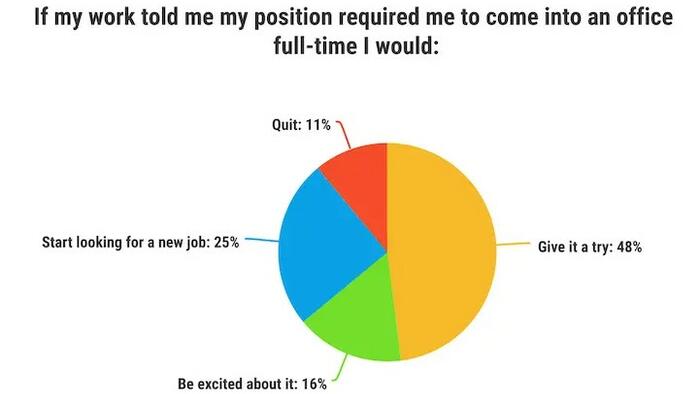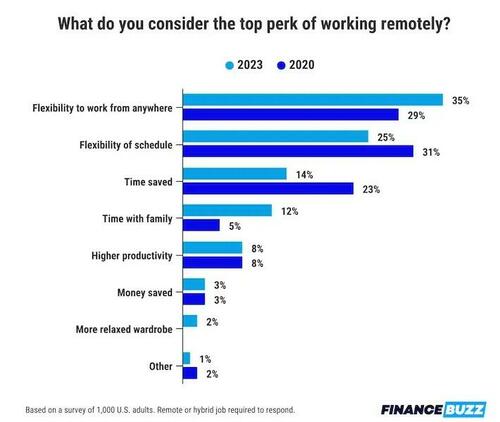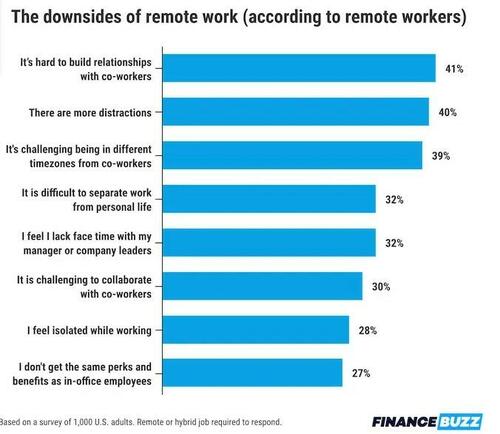


If the UAW strikes haven't proven to you that workers want to do less, for more money, perhaps this new survey will.
A new study published by FinanceBuzz this week revealed that more than 1/3rd of all remote workers would quit or find a new job if they were asked to come back into the office. Has anybody told these coddled millennials that the pandemic - and the buffet of excuses that go with it - is over?
For the survey, FinanceBuzz surveyed 1,000 U.S. adults in August 2023. Only people who indicated they have a remote or hybrid (partially remote, partially in-office) job were allowed to respond, the report says.
Their key findings were:
For most employees, the crown jewel of remote work appears to be flexibility. According to Finance Buzz's report, 35% of telecommuters indicated that the freedom to live and work from any location is the most compelling benefit, a shift from being the second most favored perk in a 2020 survey. This surge coincides with the growing allure of the "digital nomad" lifestyle and advances in telecommuting technology.
Coming in second place, 25% of remote workers appreciated the scheduling freedom their jobs provided. This marks a drop from 2020, when 31% cited schedule flexibility as their top perk. While the preferred benefits switched positions between the two surveys, they remained the top two choices, resonating with 60% of respondents collectively.
While telecommuting isn't without its pitfalls, no single downside stood out unanimously. Difficulties in fostering workplace relationships were mentioned by 41% of respondents, and 40% reported that working from home presented more distractions.
The adoption of remote work has made a lasting impression on the workforce, with many reluctant to revert to a conventional office setting. In fact, 36% of remote workers stated they would prefer quitting their job to relinquishing their work-from-home status. Given this sentiment, it's hardly startling that 58% of telecommuters are inclined to seek another remote position for their next career move, while a mere 14% would opt otherwise.
You can read the full study here.


